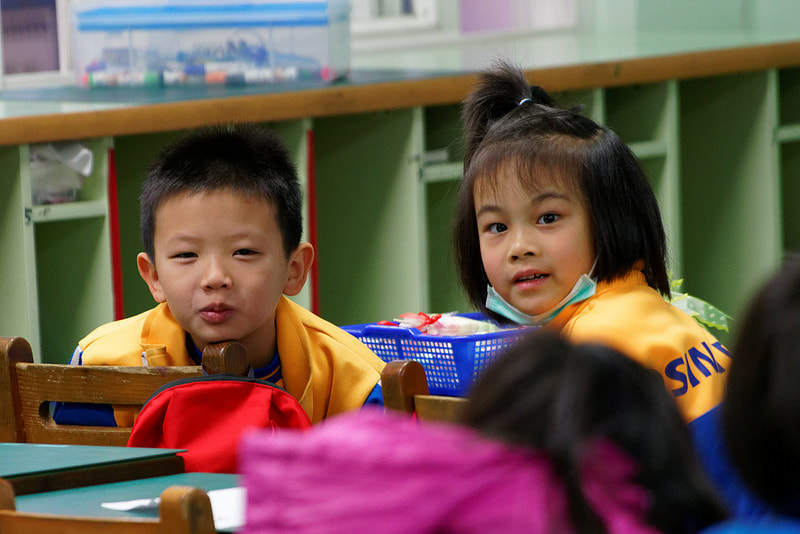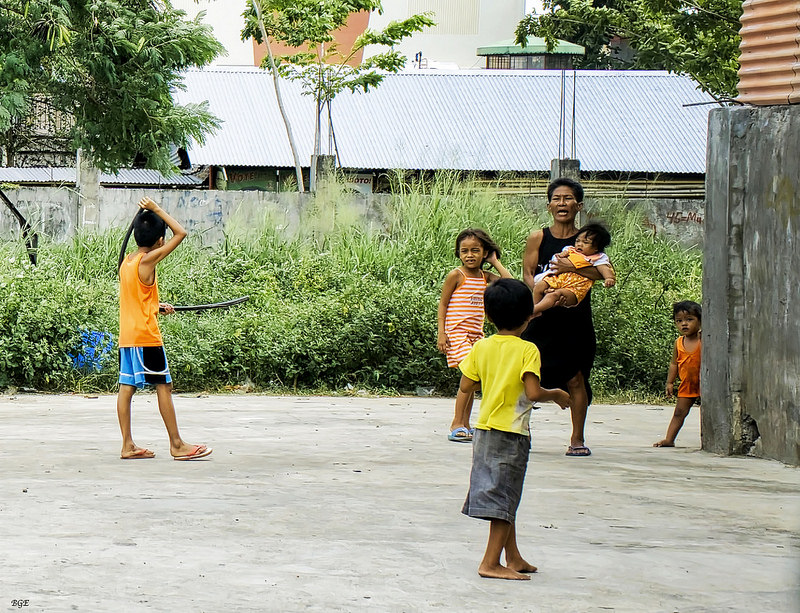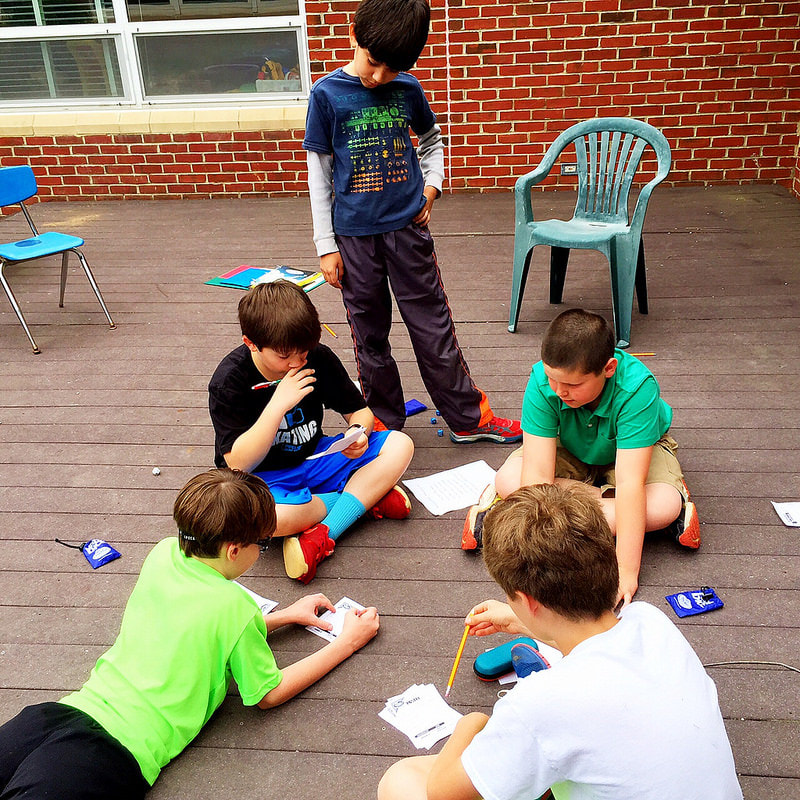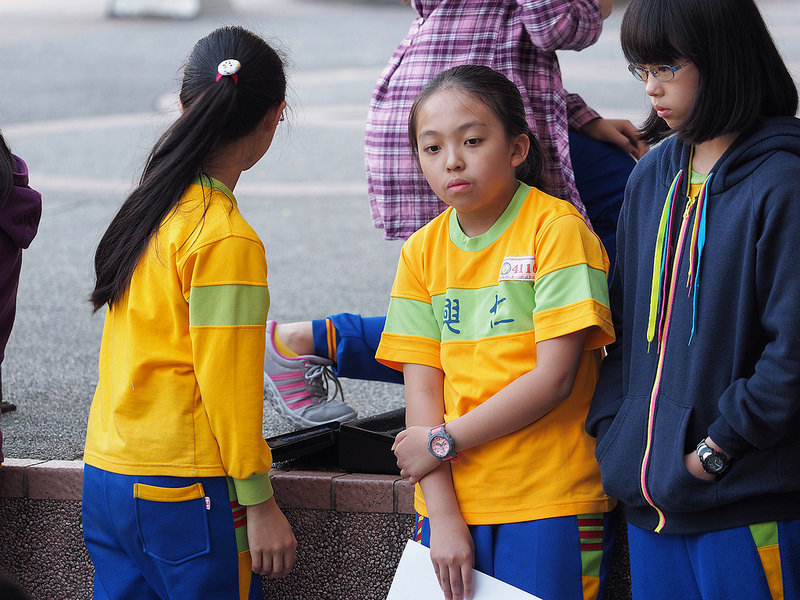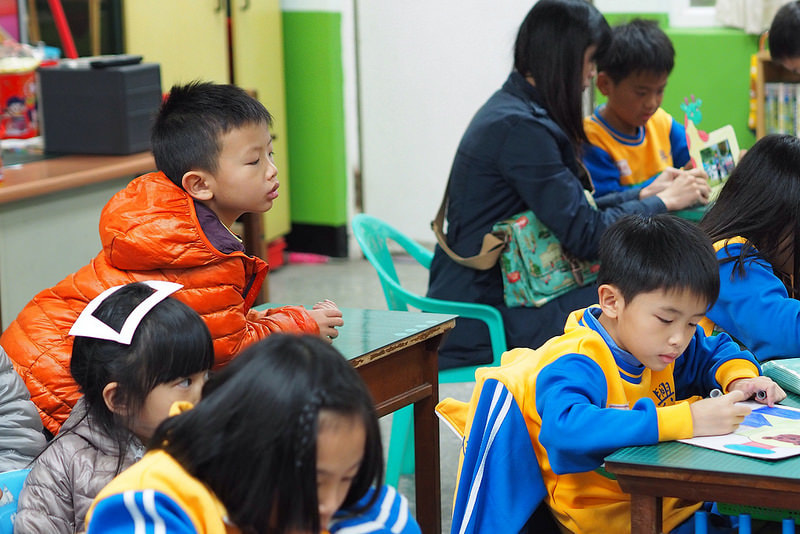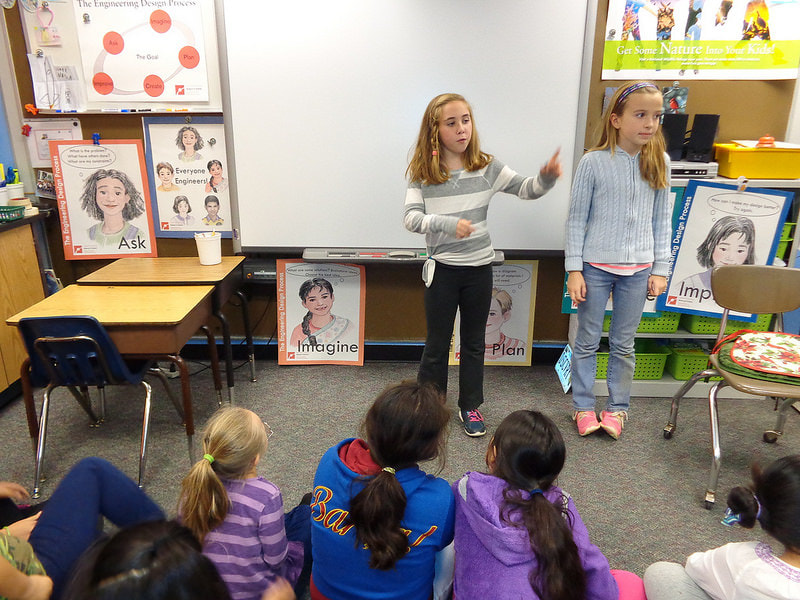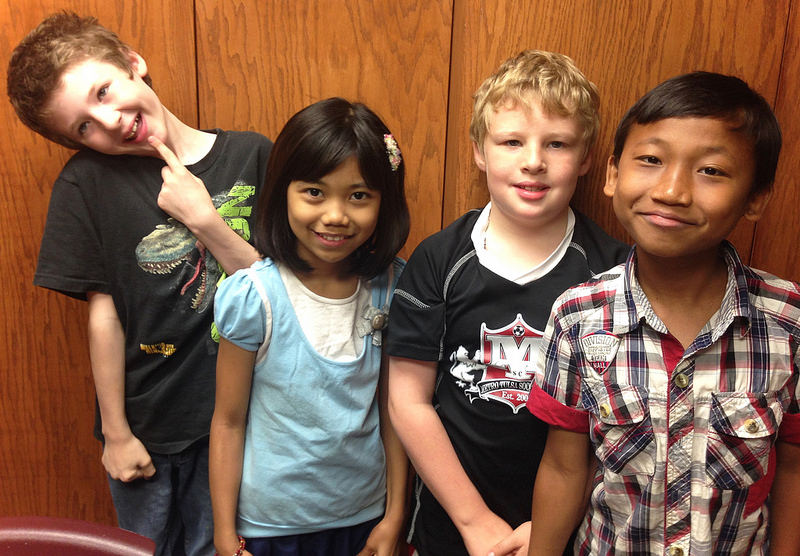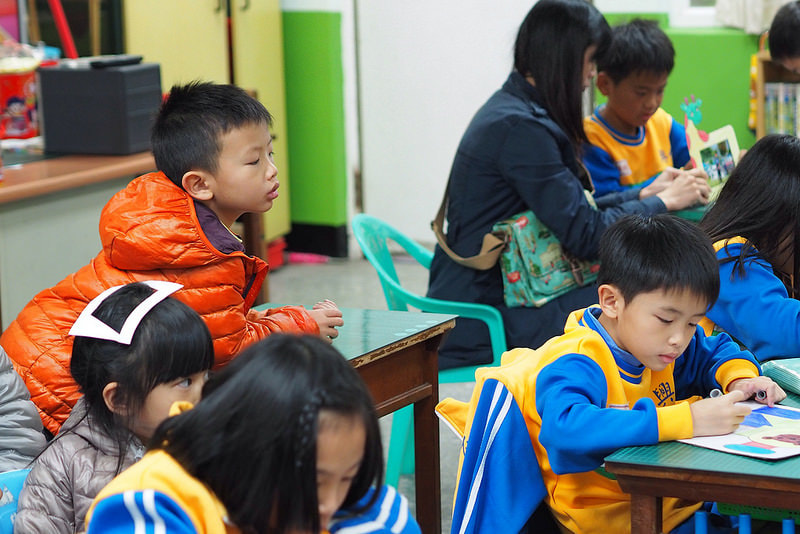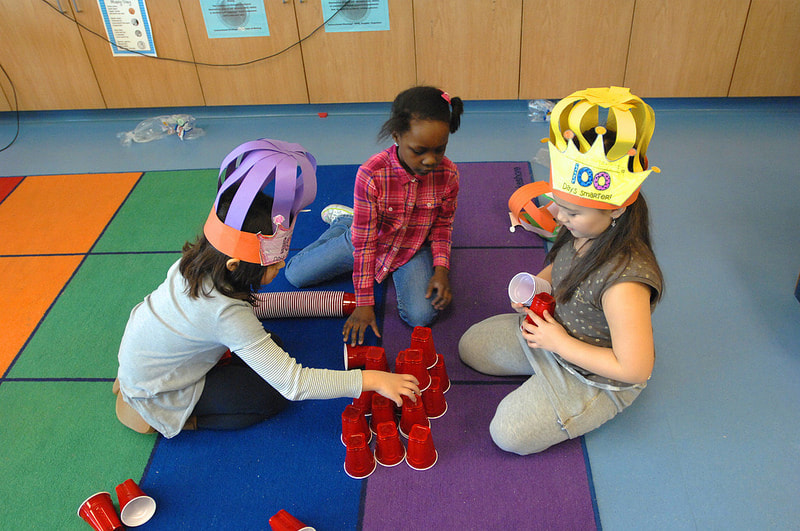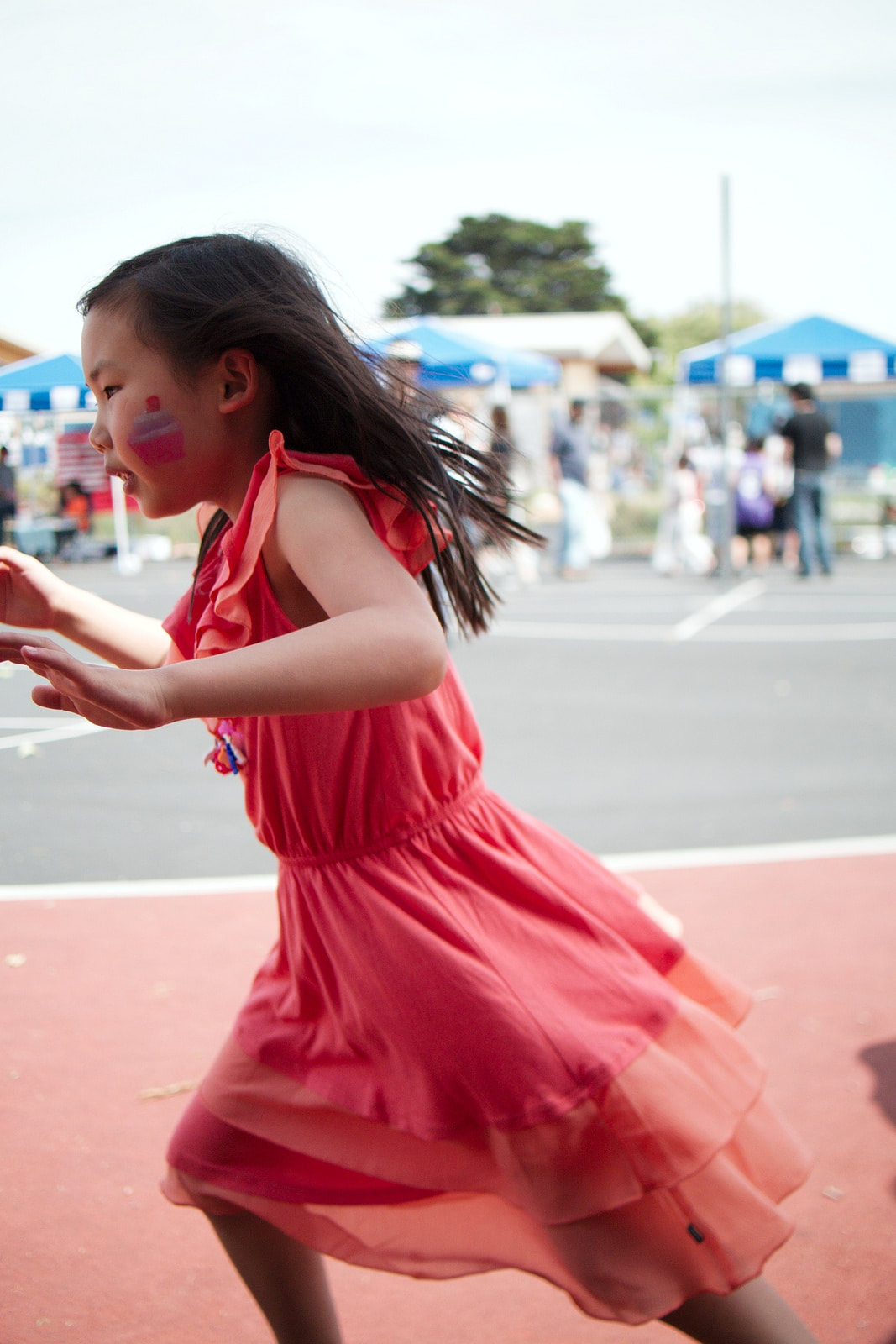The Tao of Elementary Education
Process Philosophy for Third Grade Teachers with Taoist Spirits
Scroll Down for More: Whitehead's Philosophy of Education in 12 Principles
The Tao as the Mother of the Universe
|
There was something formless and perfect
before the universe was born. It is serene. Empty. Solitary. Unchanging. Infinite. Eternally present. It is the mother of the universe. For lack of a better name, I call it the Tao. It flows through all things, inside and outside, and returns to the origin of all things. |
The Tao is great.
The universe is great. Earth is great. Man is great. These are the four great powers. Man follows the earth. Earth follows the universe. The universe follows the Tao. The Tao follows only itself. - translation of Chapter 25 by the poet, Stephen Mitchell |
The Taoist Third Grade Teacher
|
I have a friend who teaches third grade. She has won many awards for being an excellent teacher but she always responds by saying "My students are my teachers."
My friend believes that all of her students are "very smart." It doesn't matter that some of her students may not test well on standardized tests, and that a few of them have what educators call a learning disabilities. She doesn't like the phrase. She says that they is differently abled, not disabled. She is influenced by the theories of Howard Gardner, the educational theorist at Harvard who specializes in education and cognition. Along with him, she believes that there are multiple forms of intelligence, and that each student is a unique blending of various forms. Here are eight forms identified by Gardner: logical-mathematical verbal-linguistic bodily-kinesthetic visual-spatial musical-rhythmic interpersonal (knowing the feelings of others) intrapersonal (self-awareness) naturalistic (knowing about nature) My friend also knows that some people believe that there are only two forms of cognition worthy of respect: mathematical-logical; and verbal-linguistic. They think that bodily knowing and interpersonal knowing are simply abilities, but not forms of cognition. She disagrees. She thinks it is very silly to reduce cognition to words and numbers. The Tao My friend is also influenced by Chinese philosophy. She practices Tai Ji every day, and encourages her young students to do the same. She tells them that, when they do it, they are Breathing with the Universe. She combines Gardner's theories of multiple intelligence with a process or pan-en-theistic understanding of the Tao. She does not think that Tao has a body separate from the universe. "The universe is the Tao's body," she says. But she thinks that the Tao has a personal side and that the Tao has aims and intentions. For her the Tao is akin to a Mother in whose womb the universe lives and moves and has its being. In the spirit of Whitehead she believes that this Tao is both active in the world as an indwelling lure toward the fullness of life within each living being. and also receptive of the world as someone who share in the joys and sufferings of all living beings. For her Tao is like the Buddhist Bodhisattva Kuan Yin or, for that matter, like Christ. Wisdom If you ask my friend if the Tao knows things, she says: "Yes, the Tao is very wise" and then adds, with a twinkle in her eye, "the Tao has eight forms of intelligence." Of course she is referring the thought of Howard Gardner, but she is also very serious. In her words: "The Tao is filled with musical knowing and rhythmic knowing and nature-centered knowing and bodily knowing. The Tao doesn't just sit in the sky thinking about things in logical-mathematical ways, the Tao feels things and knows things through the feeling them." If you ask ask her what she means by the Tao feeling things, she refers to process theology and its idea that the the Tao prehends the world, moment by moment, with subjective forms (emotional tones) of empathy. Body If you ask her how the Tao might even feel things in a bodily way, she adds: "Tao feels things bodily, because every time anything moves in the universe Tao is moved, too. Even though the Tao doesn't have a body, the Tao is very physical." She points to Whitehead's saying in Process and Reality: "Love neither rules, nor is it unmoved." (343) If the Tao is love, she says, the Tao must be moved. Every movement of the heart and mind, even in the smallest of children, moves the Tao. Not a sparrow falls from the sky that the Tao is not moved. She thinks the Tao is especially good at interpersonal knowing. She sees interpersonal knowing as having two qualities: state-sharing and perspective-taking. "When you know another person in a personal way," she says, "you share in their joys and sorrows and you understand what it is like to be inside their skin." A Philosophy of Teaching When it comes to teaching third grade, then, ideas like these guide her teaching philosophy:
If you ask her what kinds of love are important she says kindness to other people, respect for animals, a love of the earth, a love of ideas, a love of life. She hopes that her students will grow in the arts of love. Personalized Education This is why she is such a gifted teacher. She approaches each of her students a whole person. Her aim is not to offer standardized education, but rather personalized education. She believes that the purpose of a teacher is to be a midwife, helping the Tao give birth to the fulness of life within each student. Of course knows that this takes initiative on the student's part, too. "That's the easy part," she says. "Students want to learn if only you give them a chance." Most of her students come from urban settings, and they have not had many opportunities to be close to animals, or to grow plants, or to swim in rivers and lakes. She tries to give them these kinds of opportunities and also to realize that the natural world is creative. When they draw leaves and trees she tells them: "You are collaborating with nature's creativity." One day a boy asked her: 'Can nature draw?" She said: "Yes, of course, just look at the photograph of the waterfall. See all the shapes and colors? That's nature drawing." It occurred to me then, and it occurs to me now, that she's helping the boy draw the Tao, too. Her third grade teaching is fulfilling one of the deepest yearnings within the Mother of the universe. It is not that we always draw straight lines. It is that we draw the truth of our lives, moment by moment, and thereby bring beauty to the universe. My friend is helping her students draw their truths and find their beauty. She is a teacher. |
The Most-Watched TED Talk Ever:
|
Twelve Principles in Whitehead's Philosophy of Education
Sometimes education kills creativity, stifles imagination, and destroys curiosity...all in the name of learning.
It is too standardized. It reduces students to test-taking-machines. It forgets connections between intellect and feeling. It neglects the imagination. It doesn't permit people to make mistakes. It forgets that sometimes the most important things in life -- love and trust and hope -- are vague. It confuses clarity with wisdom.
That's what Sir Ken Robinson says. He knows that there is also some good education today. But he believes that the talents of many, many children are needlessly squandered by forms of education that are modelled after factories rather than, say, a good jazz concert. We have rendered unto classrooms that which belongs to assembly lines.
Robinson is one of the world's leading thinkers on creativity, innovation, and learning. He is the author of many books, including The Element: How Finding Your Passion Changes Everything and Out of Our Minds: Learning to be Creative. And he is also very, very funny.
His talks are worth listening to for the humor alone. You'll see. The first one has now been viewed by almost a million people around the world.
Whitehead's Philosophy of Education
If you are interested in a philosophy that supports Ken Robinson's point of view, you will be interested in the philosophy of Alfred North Whitehead.
Whitehead was a mathematician and philosopher who taught at Harvard late in his life. His process philosophy is now being developed by scholars around the world, especially in East Asia. Late in his career he became very interested in education and wrote a famous book called The Aims of Education, which is often used as a seminal text by people interested in educational reform.
Here are some key ideas in Whitehead's philosophy which resonate deeply with the ideas of Ken Robinson.
1. The Subject of Education. The ultimate subject in education is Life in all it manifestations: human life but also the life of the plants and animals, the earth, and the wider universe. The whole of nature is alive.
2. Creativity. Creativity is an essential dimension of life and it is found at every level of existence. The planets and stars are creative in their ways, and so are the quantum events within the depths of atoms. Animals are obviously creative in their capacities for innovation and adaptation. When educators stifle creativity, they are going against the very grain of the universe.
3. Collaborative Creativity. We are not skin-encapsulated egos cut off from the world by the boundaries of our skin; we are persons-in-community whose very identities are established in relation to others. Even if a person develops ideas in isolation, the ideas are a synthesis of countless forms of creativity developed by others.
4. Intellect and Feeling. The Western Enlightenment was mistaken to present the mind as if it were disembodied and disaffected, separable from feeling and movement. The intellect ought not to be separated from feeling. Even thinking is a form of feeling: a feeling of ideas. This includes even mathematical thinking. It is a felt exploration of pure potentialities.
5. Multiple forms of Intelligence. It is a mistake to reduce intelligence to science and mathematics, or even to book learning. There are multiple forms of intelligence: kinesthetic, empathic, mathematical, emotional, verbal, imaginative, and practical. All are important in different circumstances.
6. Aesthetic experience. Aesthetic experience plays an important role in education, because all experience is aesthetic. The very aim of education at its best is to provide people with ways of finding beauty in their lives and adding beauty to the lives of others. Even wisdom and compassion, even truth and goodness, are forms of beauty. Beauty consists of satisfying forms of harmony and intensity.
7. The Problem of Inert Ideas. The problem with education today is that it is focused on inert ideas. Inert ideas are ideas that are treated in isolation from their relevance to life and the world, and in isolation from their relevance to students. They are approached as commodities or as objects, but not as lures for feeling, understanding, and action. When ideas function effectively in education, they are alive with potentiality.
8. The Need for Romance. A good teacher must always remember that there are three phases to education: romance, precision, and generalization. The romantic stage occurs when students are introduced to ideas that engage them, that are interesting, that make them feel more alive. The precision can come later, but without romance where is no joy in education.
9. The Problem of Standardization. Education fails when it is locked into standardization when it should be focused on personalization. Each student is unique in his or her abilities, and in the particular forms of 'intelligence' that bring him or her joy and can help him or her contribute to the well-being of the world.
10. The Value of Learning by Doing. Education fails when it forgets the wisdom of the body, and when it forgets that, often, the most important kinds of learning occur through practice. Learning can occur from body to mind as well as mind to body. This does not mean that book learning is bad. To the contrary it is wonderful. But it's not enough.
11. The Problem of Disciplinary Fragmentation. In higher education today a central problem lies in the excessive specialization of academic disciplines. Often university professors assume that their primary goal is to introduce students into their academic guilds, forgetting the education is in service to life. While specialization can be valuable, it needs to be balanced by generalization, and transdisciplinary studies.
12. Whole Person Education. At every level education needs to be oriented toward the cultivation of whole persons who live satisfying lives and who, at the same time, can contribute to the common good of their communities and the world.
This is only a skeleton of Whitehead's ideas on education.
-- Jay McDaniel
It is too standardized. It reduces students to test-taking-machines. It forgets connections between intellect and feeling. It neglects the imagination. It doesn't permit people to make mistakes. It forgets that sometimes the most important things in life -- love and trust and hope -- are vague. It confuses clarity with wisdom.
That's what Sir Ken Robinson says. He knows that there is also some good education today. But he believes that the talents of many, many children are needlessly squandered by forms of education that are modelled after factories rather than, say, a good jazz concert. We have rendered unto classrooms that which belongs to assembly lines.
Robinson is one of the world's leading thinkers on creativity, innovation, and learning. He is the author of many books, including The Element: How Finding Your Passion Changes Everything and Out of Our Minds: Learning to be Creative. And he is also very, very funny.
His talks are worth listening to for the humor alone. You'll see. The first one has now been viewed by almost a million people around the world.
Whitehead's Philosophy of Education
If you are interested in a philosophy that supports Ken Robinson's point of view, you will be interested in the philosophy of Alfred North Whitehead.
Whitehead was a mathematician and philosopher who taught at Harvard late in his life. His process philosophy is now being developed by scholars around the world, especially in East Asia. Late in his career he became very interested in education and wrote a famous book called The Aims of Education, which is often used as a seminal text by people interested in educational reform.
Here are some key ideas in Whitehead's philosophy which resonate deeply with the ideas of Ken Robinson.
1. The Subject of Education. The ultimate subject in education is Life in all it manifestations: human life but also the life of the plants and animals, the earth, and the wider universe. The whole of nature is alive.
2. Creativity. Creativity is an essential dimension of life and it is found at every level of existence. The planets and stars are creative in their ways, and so are the quantum events within the depths of atoms. Animals are obviously creative in their capacities for innovation and adaptation. When educators stifle creativity, they are going against the very grain of the universe.
3. Collaborative Creativity. We are not skin-encapsulated egos cut off from the world by the boundaries of our skin; we are persons-in-community whose very identities are established in relation to others. Even if a person develops ideas in isolation, the ideas are a synthesis of countless forms of creativity developed by others.
4. Intellect and Feeling. The Western Enlightenment was mistaken to present the mind as if it were disembodied and disaffected, separable from feeling and movement. The intellect ought not to be separated from feeling. Even thinking is a form of feeling: a feeling of ideas. This includes even mathematical thinking. It is a felt exploration of pure potentialities.
5. Multiple forms of Intelligence. It is a mistake to reduce intelligence to science and mathematics, or even to book learning. There are multiple forms of intelligence: kinesthetic, empathic, mathematical, emotional, verbal, imaginative, and practical. All are important in different circumstances.
6. Aesthetic experience. Aesthetic experience plays an important role in education, because all experience is aesthetic. The very aim of education at its best is to provide people with ways of finding beauty in their lives and adding beauty to the lives of others. Even wisdom and compassion, even truth and goodness, are forms of beauty. Beauty consists of satisfying forms of harmony and intensity.
7. The Problem of Inert Ideas. The problem with education today is that it is focused on inert ideas. Inert ideas are ideas that are treated in isolation from their relevance to life and the world, and in isolation from their relevance to students. They are approached as commodities or as objects, but not as lures for feeling, understanding, and action. When ideas function effectively in education, they are alive with potentiality.
8. The Need for Romance. A good teacher must always remember that there are three phases to education: romance, precision, and generalization. The romantic stage occurs when students are introduced to ideas that engage them, that are interesting, that make them feel more alive. The precision can come later, but without romance where is no joy in education.
9. The Problem of Standardization. Education fails when it is locked into standardization when it should be focused on personalization. Each student is unique in his or her abilities, and in the particular forms of 'intelligence' that bring him or her joy and can help him or her contribute to the well-being of the world.
10. The Value of Learning by Doing. Education fails when it forgets the wisdom of the body, and when it forgets that, often, the most important kinds of learning occur through practice. Learning can occur from body to mind as well as mind to body. This does not mean that book learning is bad. To the contrary it is wonderful. But it's not enough.
11. The Problem of Disciplinary Fragmentation. In higher education today a central problem lies in the excessive specialization of academic disciplines. Often university professors assume that their primary goal is to introduce students into their academic guilds, forgetting the education is in service to life. While specialization can be valuable, it needs to be balanced by generalization, and transdisciplinary studies.
12. Whole Person Education. At every level education needs to be oriented toward the cultivation of whole persons who live satisfying lives and who, at the same time, can contribute to the common good of their communities and the world.
This is only a skeleton of Whitehead's ideas on education.
-- Jay McDaniel





